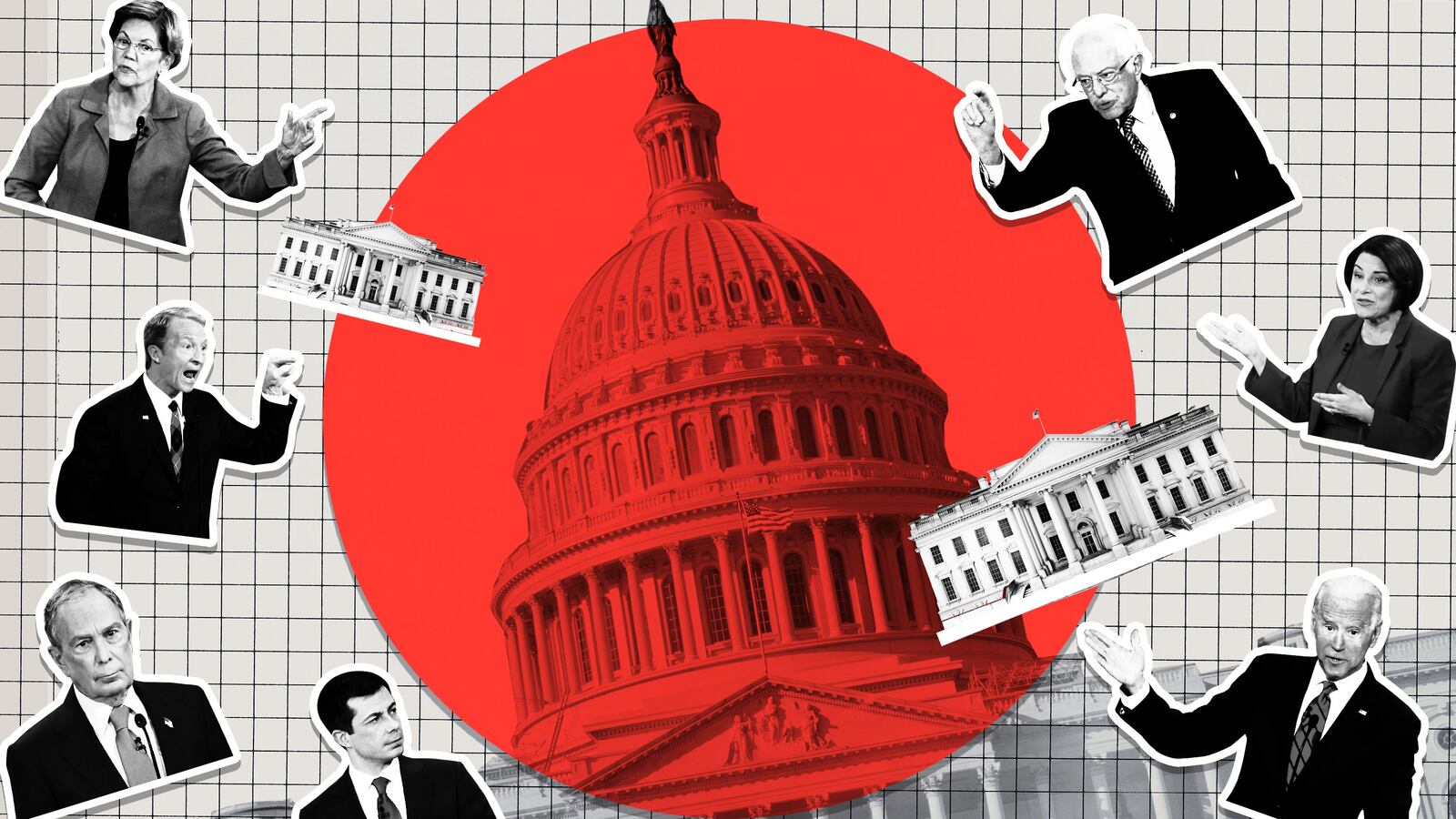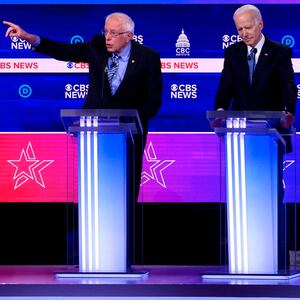It was late into Tuesday night’s debate when former South Bend Mayor Pete Buttigieg challenged Sen. Bernie Sanders (I-VT) about his praise for the domestic gains made by the Castro regime in Cuba. Sanders shot back to defend himself and his policy agenda.
And then, they just started yelling.
For the next half minute, the two screamed at each other, Sanders pointing his finger aimlessly over the dais, the candidates made annoyed hand gestures as a voice of a moderator, desperate to gain control of the fracas, called out from off-camera: “One at a time!”
Such was the evening in Charleston, the last of these gatherings before voters head to the polls in the Palmetto State this Saturday and, more importantly for candidates not named “Joe Biden,” the last before Super Tuesday as well.
If you wanted a debate to help you make up your mind, you came away disappointed. Instead, what you got was shouting and sighs, canned lines and badly landed jokes, curt ways for the candidates showing they had more to say, not-so-subtle pleas for campaign donations, and virtually everyone begging for more time.
Which in many ways is true.
They need more time. Most of them need more money. And it is precisely those needs that led to a debate defined by political desperation.
Sanders, hot off a massive win in the Nevada caucuses and a closer victory in the New Hampshire primary, received his first proper frontrunner treatment as his rivals scrambled for a place in the more moderate lane.
“I’m hearing my name mentioned a little bit tonight,” he said after facing a barrage of early attacks. “I wonder why?”
But the desperation prompted some new and unlikely sparring matches not remotely directed in the frontrunner’s direction.
Former Vice President Joe Biden and businessman Tom Steyer fought over the latter’s investment in a private prison company; Biden and Sen. Amy Klobuchar (D-MN) sparred over which had done more to prevent domestic abusers from purchasing guns; Sen. Elizabeth Warren (D-MA) went for the K.O. with former New York City Mayor Michael Bloomberg, blasting him with allegations that he once demanded that an employee abort her unborn child and criticizing him for funding “right-wing” lawmakers in past cycles.
“I don’t care how much money Mayor Bloomberg has,” Warren said. “The core of the Democratic Party will never trust him. He has not earned their trust. I will. And the fact that he cannot earn the trust of the core of the Democratic Party means he is the riskiest candidate standing on this stage.”
The result was a messy tangle of shouting and crosstalk, perhaps best encapsulated by the Sanders-Buttigieg exchange over health care, education, ’60s radicalism, and deceased Cuban dictator Fidel Castro.
“I am not looking forward to a scenario where it comes down to Donald Trump with his nostalgia for the social order of the 1950s and Bernie Sanders with a nostalgia for the revolutionary politics of the 1960s,” Buttigieg said.
Tuesday was likely the last chance for some of the contenders lagging behind in the race to make their last-ditch appeals that have either failed to give them momentum or been able to sustain their limited past success.
“Bernie in fact hasn’t passed much of anything,” Biden said as he tried to chip away at Sanders’ growing momentum.
And less than a half hour in, the billionaire Steyer was already bemoaning the conversation on stage and the risk it posed for Democrats.
“We are looking at a party that has decided that we’re either going to support someone who’s a democratic socialist or somebody who has a long history of being a Republican,” Steyer said.
The arguing on stage also cut into some of the candidates’ patience. “If we spend the next four months tearing our party apart, we’re going to watch Donald Trump spend the next four years tearing our country apart,” said Klobuchar.
As the evening progressed, it became clearer that the candidates themselves were growing frustrated with the proceedings. Several complained openly about being cut off by the hosts. Others wondered aloud why they weren’t getting a chance to respond to attacks. Commercial breaks came at weird, inopportune moments and conversations seemed disjointed as the moderators from CBS veered chaotically from topic to topic.
For some of the seven on stage, the reality likely set in that this could be their last night in a 2020 debate—or their best chance at remaining relevant. That much was clear from the debate’s outset, when Biden made the stakes of this Saturday’s primary in the Palmetto State crystal clear, answering a question about his slipping poll numbers in South Carolina with an adamant pledge to win the state—a pledge that, should his numbers continue to drift downward, risks being played on loop.
“I intend to win South Carolina and I will win the African-American vote here in South Carolina,” Biden said.
But by the evening’s end, everyone just seemed a bit exhausted with how disorganized the whole thing was. And even a desperate Biden was left wondering why he was obeying the rules of a debate that had gone so far off the rails.
“Why am I stopping?” he asked at one point, when he respected the moderator’s wishes that he would. “No one else stops.”







